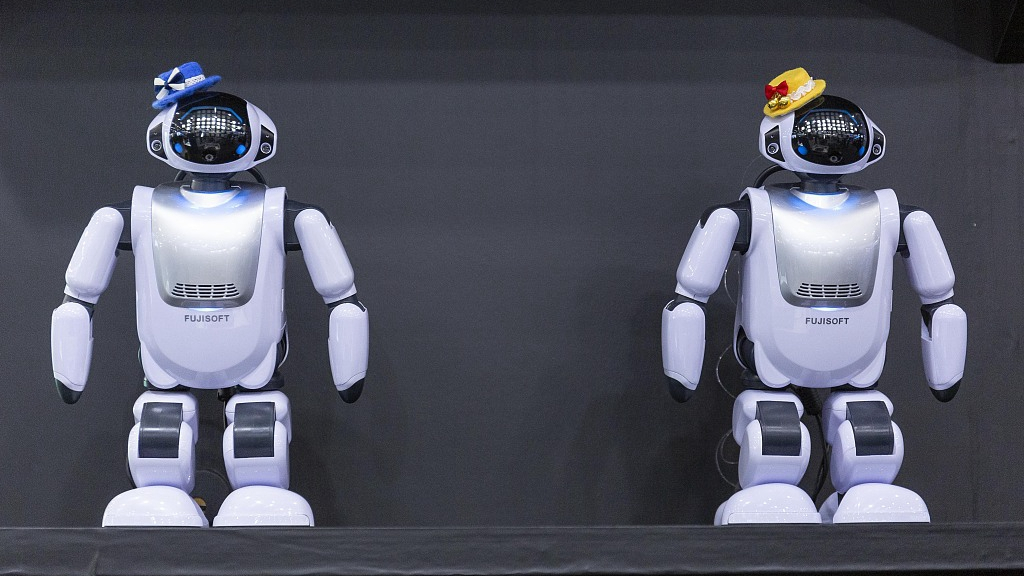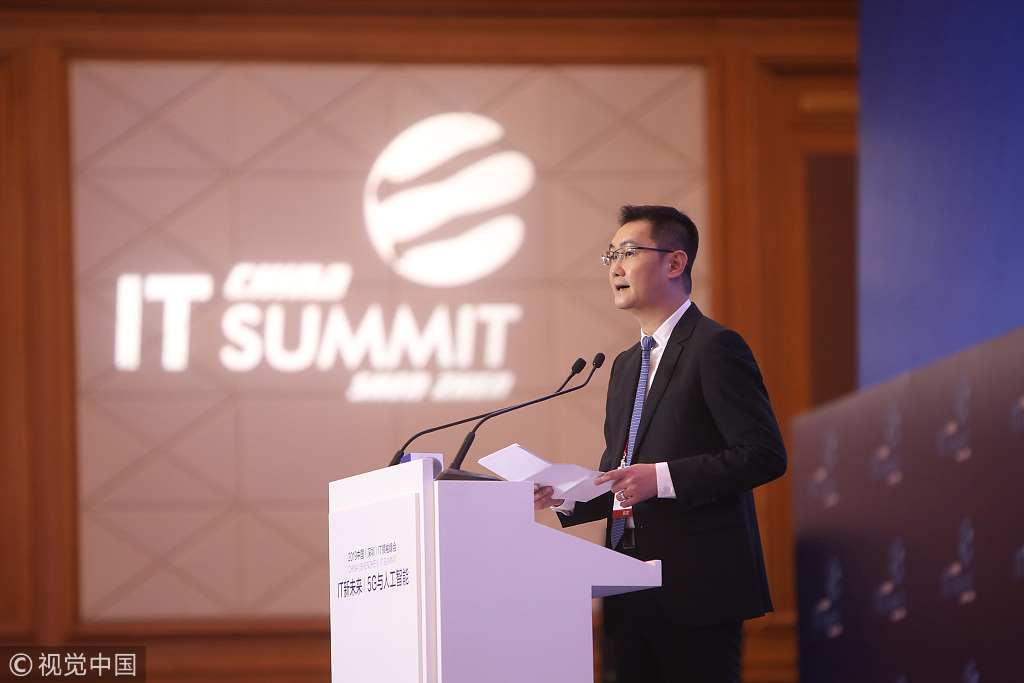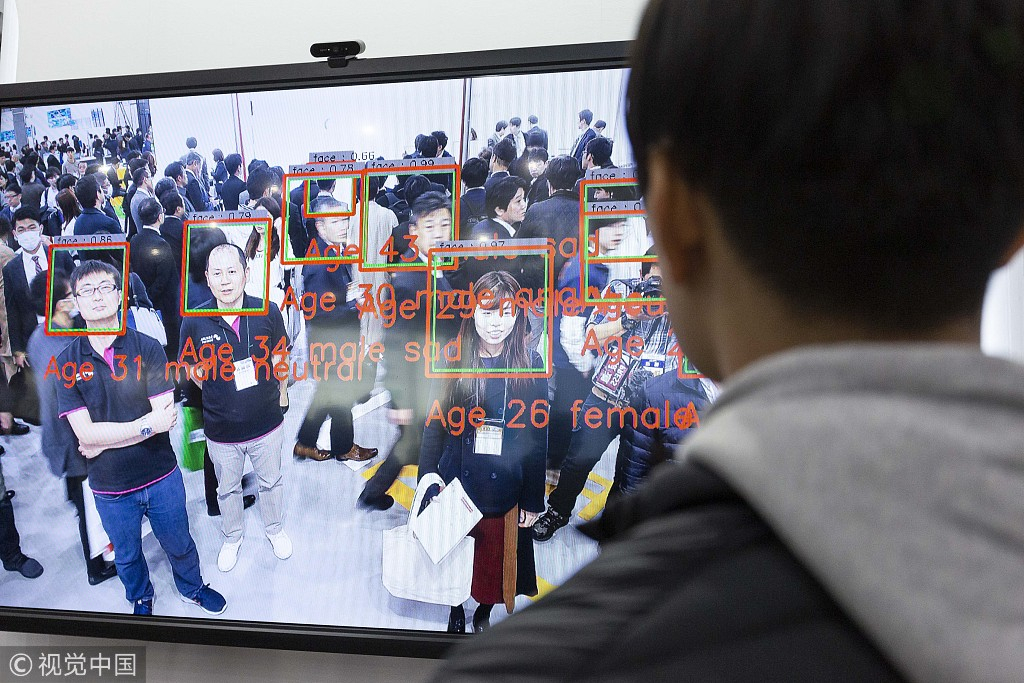
Opinion
17:32, 11-Apr-2019
China's economy will benefit from AI and automation
Updated
22:09, 11-Apr-2019
Adam Garrie

Editor's Note: Adam Garrie is the director of the UK-based global policy and analysis think tank Eurasia Future and co-host of talk show "The History Boys." The article reflects the author's opinion, and not necessarily the views of CGTN.
By the end of the 21st century, many important vocations will be subsumed by AI-driven automation. Even in 2019, jobs that were once considered stable and prestigious are being gradually transferred away from the human mind and human hand to artificial intelligence and the robotic hand.
Insofar as this is the case, it is becoming obvious that China's economic model is the only major system in the world today that is ready for the changes that AI and increased automation will bring. Market Socialism with Chinese characteristics focuses both on encouraging the creation of wealth whilst making it so that the wealth generated by the nation is used to benefit the people as a whole.

Ma Huateng, founder, chairman and CEO of Tencent speaks during a China IT Summit in Shenzhen, China, March 31, 2019. /VCG Photo
Ma Huateng, founder, chairman and CEO of Tencent speaks during a China IT Summit in Shenzhen, China, March 31, 2019. /VCG Photo
This contrasts with the Western neoliberal model in which the wealth generated by the nation remains circulated among a small group of ultra-wealthy elites and it also contrasts with unreformed command economies that discourage wealth creating innovation.
In this sense, the challenges posed by AI to traditional economic models are not novel, but instead, they will monumentally amplify current challenges.
A modern economy has two main goals. First of all, the economy must be productive enough to generate wealth on an increased basis year upon year. Secondly, the wealth generated by the nation as a whole must be distributed in such a way that is ethical and conducive to building a happy, peaceful and harmonious society.
These goals will not change once AI becomes a central driver of economic productivity, but the way in which workers interact with capital will ultimately change. While a mechanized economy defined the industrial revolution, modern industrial economies were ultimately powered by the labor of large workforces that operated, maintained and built the machines of industry.
By the end of the 21st century, it is likely that the need for a large workforce made up of both semi-skilled and highly skilled labor will no longer be required in the way that the world has been accustomed to in the 19th and 20th centuries. This means that in economies which measure a worker's value by the time such a worker dedicates to a task, a worker's value will become worthless.

A display shows a facial recognition system during the 3rd Artificial Intelligence Exhibition and Conference (AI EXPO Tokyo 2019) in Tokyo, April 3, 2019. /VCG Photo
A display shows a facial recognition system during the 3rd Artificial Intelligence Exhibition and Conference (AI EXPO Tokyo 2019) in Tokyo, April 3, 2019. /VCG Photo
However, in economies where a worker's value is based on the efforts the worker exudes to add both quantifiable and qualitative value into society, the worker will still be valued. This will be the case even though such a worker will be living in a world where factories mass producing cars may only have a few human technicians present on a daily basis to ensure the smooth running of a fully automated and AI controlled factory.
China's current transition from a mass production-driven economy to an economy focused on innovation and the production of high-quality goods has not resulted in economic hardship for the working people. Instead, by pivoting to a model focused on refining the production model in order to generate sustainable wealth, the people are moving towards the goal of the moderately prosperous society in all respects.
This makes it clear because of China's balanced economic model, even when wealth creating industries become more refined, the people as a whole still stand to benefit from an increase in their overall material condition. For example, the wealth generated in China's ultra-modern industrial and scientific sectors is being used by the government to invest in modern farming techniques that will help to elevate the poorest economic communities out of poverty, thus accomplishing China's goal of totally eliminating poverty in China. Cities themselves continue to be furnished with new public spaces, new educational and hospital facilities and modern housing thanks to the wealth generated by the economy as a whole.
Because of this, there will not be any major shift or unexpected hardships when the wealth generated in China is done so at the tip of a robotic hand rather than a human hand. The economic model currently in place assures that no matter where the internal wealth comes from, it ends up providing material benefits to society as a whole.
While neoliberal economists struggle to come up with a means to resolve the challenges posed by an AI-driven economy that will require less human labor, China's economic model is set to be the only major economic model of the early 21st century that is guaranteed not to be obsolete by the end of the 21st century.
(If you want to contribute and have specific expertise, please contact us at opinions@cgtn.com.)

SITEMAP
Copyright © 2018 CGTN. Beijing ICP prepared NO.16065310-3
Copyright © 2018 CGTN. Beijing ICP prepared NO.16065310-3